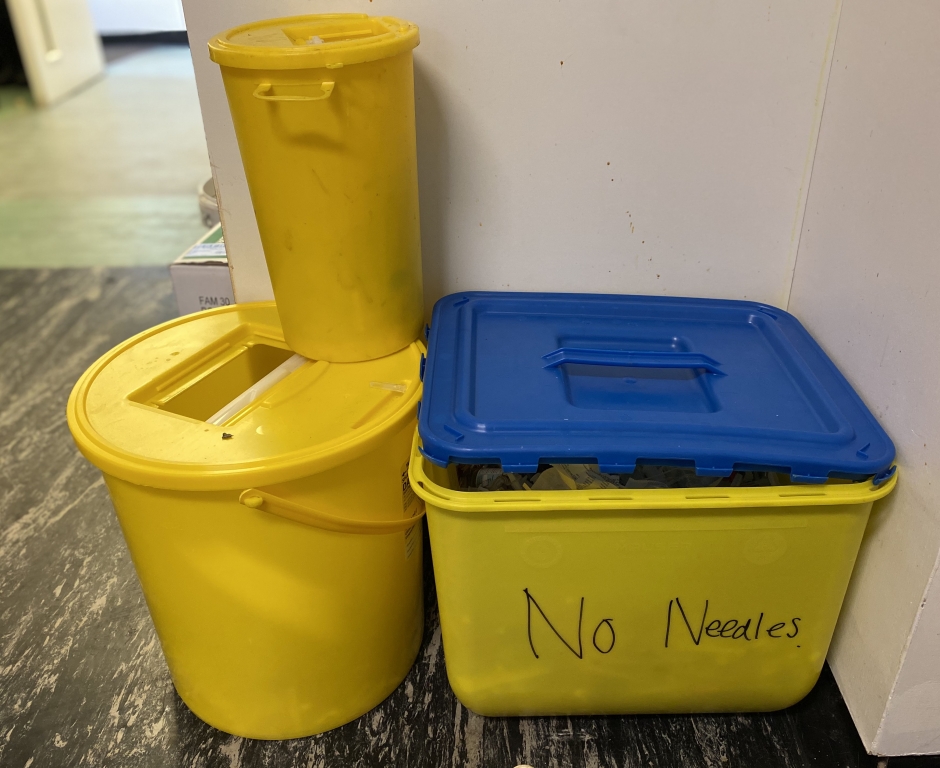
Do You Know How Your Farmers Are Disposing Of Their Pharmaceutical Waste?
Vets and farmers are being encouraged to work together to ensure best practice in the disposal of pharmaceutical waste.
The move follows recent research by Ceva Animal Health, innovators in eco-friendly packaging for livestock injectables, which revealed that nearly 60 per cent of vets believed that some of their farming clients could be disposing of pharmaceutical waste in domestic or commercial waste bins, while over a quarter of vets acknowledged that they do not actively promote the disposal of their clients’ empty pharmaceutical waste on their behalf1.
Furthermore, while vets were aware that both glass and shatterproof plastic vials are incinerated, over 65 per cent of those questioned believed that glass vials were more environmentally friendly, when in reality Ceva’s CLAS (Ceva Layered Anti Shatter) shatterproof plastic vials have 33 per cent less impact on the environment from cradle to grave2.
Ceva Animal Health is producing a range of bespoke support materials to help vets to raise awareness of their pharmaceutical waste disposal service and drive improvements across the industry. The support pack includes tailored social media and newsletter content to meet the individual requirements of veterinary practices.
“As an industry we should be doing all that we can to improve our environmentally friendly credentials,” comments Peter Keyte, ruminant business unit manager at Ceva Animal Health. “Ceva will continue to invest in innovative eco-friendly technology for livestock injectables and pioneer improvements to help ensure best practice throughout the industry.”
Ceva Animal Health trademarked its innovative CLAS (Ceva Layered Anti Shatter) vials in 2007 and continues to invest in this technology for livestock injectables, such as NSAIDs and antibiotics. These include ZELERIS, FLORKEM and VETRIMOXIN, with KETOFEN available in CLAS vials later in 2020 and other products in the range from 2021.
The easy to use, practical and eco-friendly CLAS vials are preferred by 99 per cent of farmers2 on farm. The vials are:
- Eco-friendly for less impact on the environment3
- Robust and shock resistant4 for less breakage, spillage and losses
- Ergonomic as they have a ‘grip groove’ for easier handling5
- Utilise light weight material for easier transportation and handling6
- Have a hi-tech multi-layered structure for great product stability7
For further information, or to request a pharmaceutical waste disposal service support pack, please contact your local Ceva account manager or call 01494 781510.
References
- Ceva Animal Health – environmental impact of plastic and glass vials research amongst 116 farm and mixed practice vets. September 2020
- Usage survey conducted on 540 farmers in France (2012)
- Jacquet C. et al. Comparative life cycle analysis, final report with critical review, CLAS packaging system and traditional glass packaging system. 2016, APESA 0393 Impact 2002 p33, fig.21 p36
- Cavaroc P. J. et al. – Comparative breakage study of injectable anti-infectives vials under vertical drop test by free fall under standardized conditions. IPVS Congress, 2012, 100
- CLAS vials reference book (2012). Section 5.2: Artis Factis and Ceva developed hand zone ergonomic study (2003). P 16
- CLAS vials reference book (2012). Section 5.4: Comparison of the weight of CLAS vials vs. glass vials showing that CLAS vials are 6 X lighter than glass vials of the same size. P19
- CLAS vials reference book (2012). Section 5.1: R&D challenge: how to create a plastic vial as secure as a glass vial? P14 – 15
More from Ceva
- Ceva supports Tiny the cat with StreetVet donation
- Collaborative effort to strengthen Singapore’s preparedness against avian influenza
- Ease Pet Anxiety This Fireworks Season with Ceva's Vet-Approved Solutions
- Ceva and International Cat Care launch season 2 of cat handling training videos
- Ceva launches service to highlight the cost of infertility linked to Q fever

 5 years ago
5 years ago  1590 views
1590 views